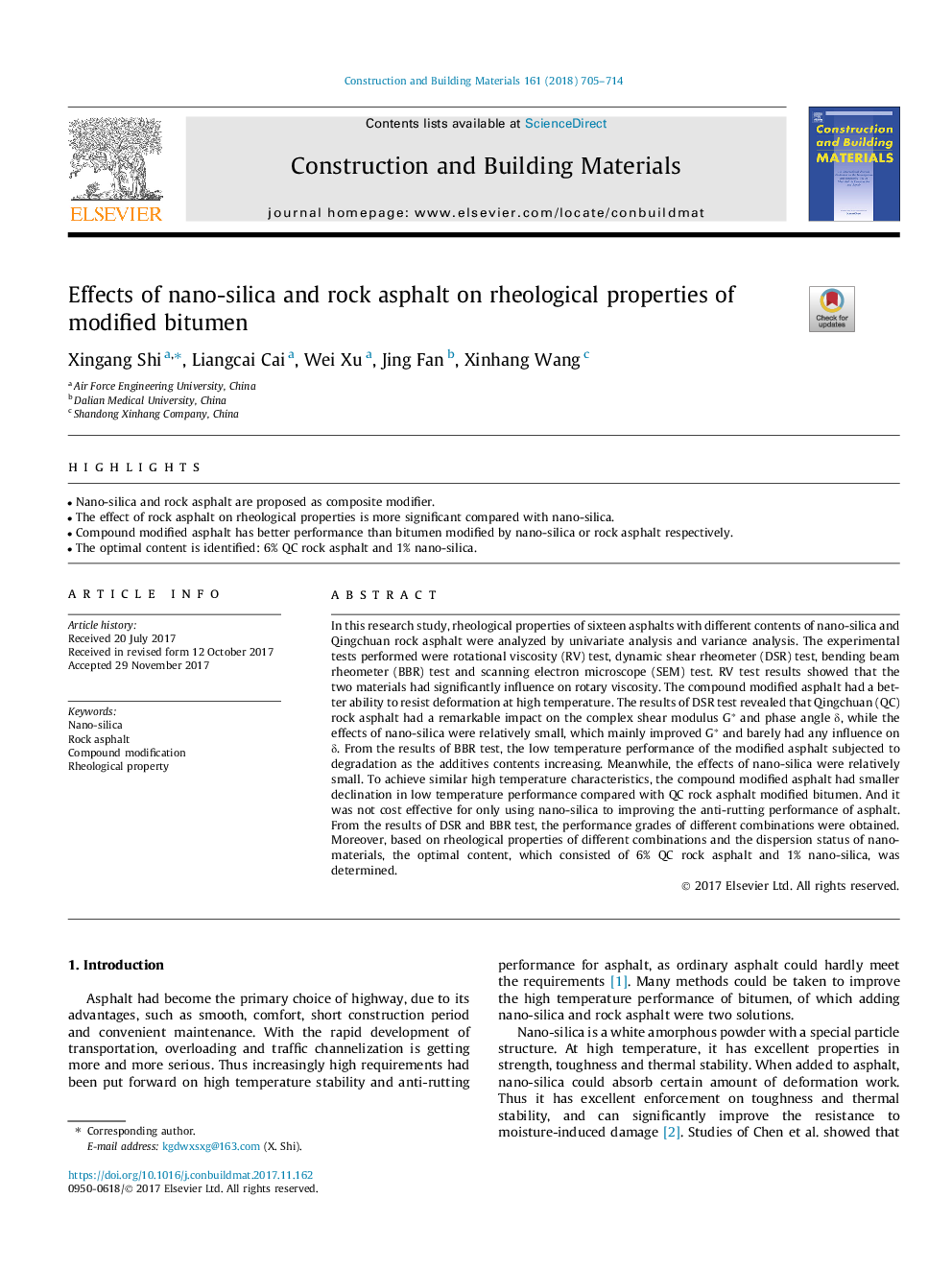| Article ID | Journal | Published Year | Pages | File Type |
|---|---|---|---|---|
| 6716910 | Construction and Building Materials | 2018 | 10 Pages |
Abstract
In this research study, rheological properties of sixteen asphalts with different contents of nano-silica and Qingchuan rock asphalt were analyzed by univariate analysis and variance analysis. The experimental tests performed were rotational viscosity (RV) test, dynamic shear rheometer (DSR) test, bending beam rheometer (BBR) test and scanning electron microscope (SEM) test. RV test results showed that the two materials had significantly influence on rotary viscosity. The compound modified asphalt had a better ability to resist deformation at high temperature. The results of DSR test revealed that Qingchuan (QC) rock asphalt had a remarkable impact on the complex shear modulus Gâ and phase angle δ, while the effects of nano-silica were relatively small, which mainly improved Gâ and barely had any influence on δ. From the results of BBR test, the low temperature performance of the modified asphalt subjected to degradation as the additives contents increasing. Meanwhile, the effects of nano-silica were relatively small. To achieve similar high temperature characteristics, the compound modified asphalt had smaller declination in low temperature performance compared with QC rock asphalt modified bitumen. And it was not cost effective for only using nano-silica to improving the anti-rutting performance of asphalt. From the results of DSR and BBR test, the performance grades of different combinations were obtained. Moreover, based on rheological properties of different combinations and the dispersion status of nano-materials, the optimal content, which consisted of 6% QC rock asphalt and 1% nano-silica, was determined.
Keywords
Related Topics
Physical Sciences and Engineering
Engineering
Civil and Structural Engineering
Authors
Xingang Shi, Liangcai Cai, Wei Xu, Jing Fan, Xinhang Wang,
